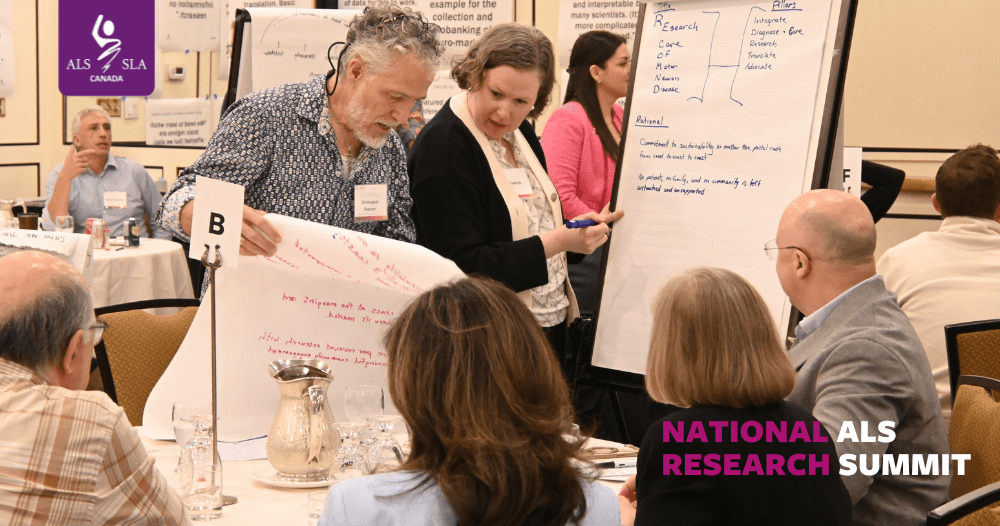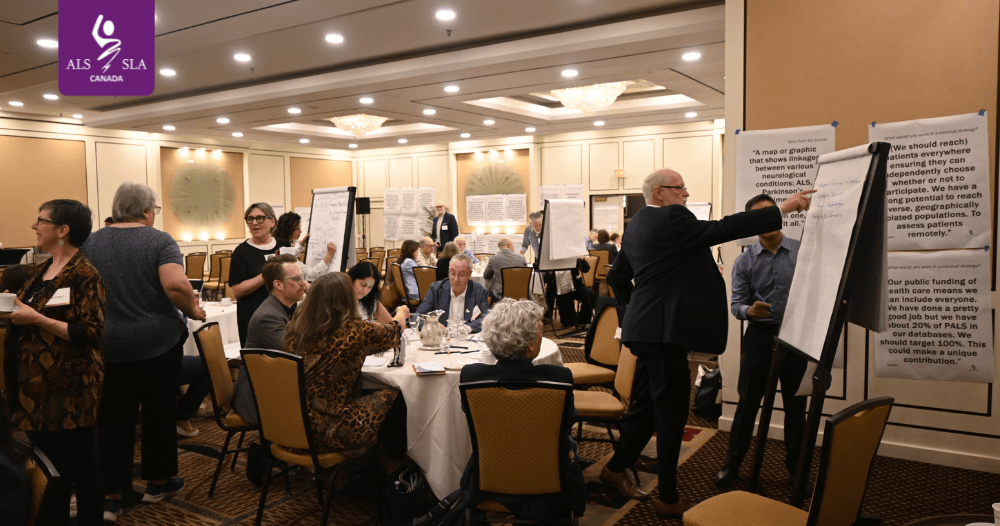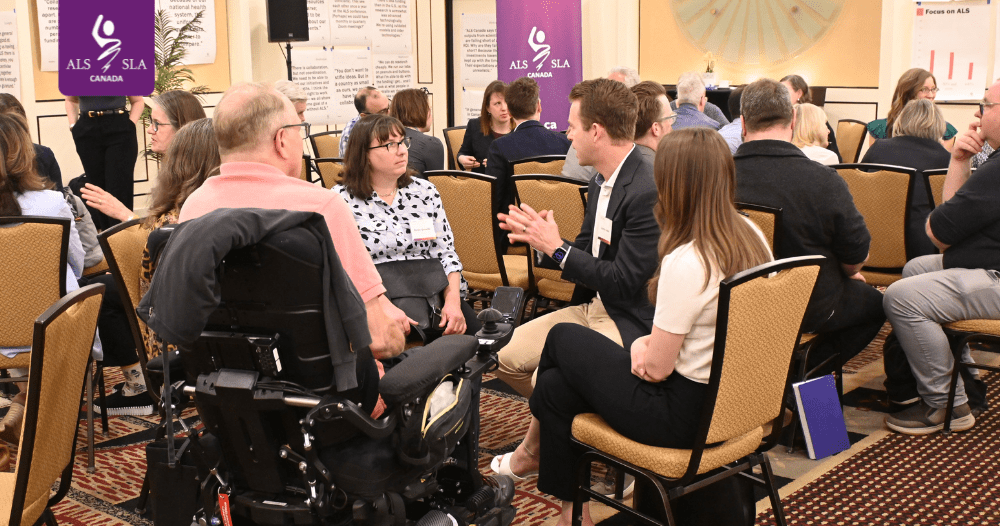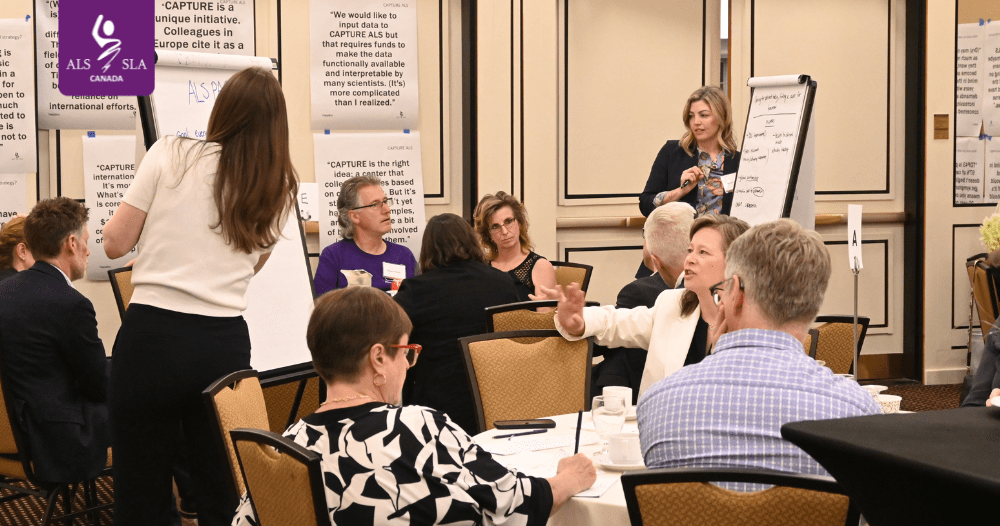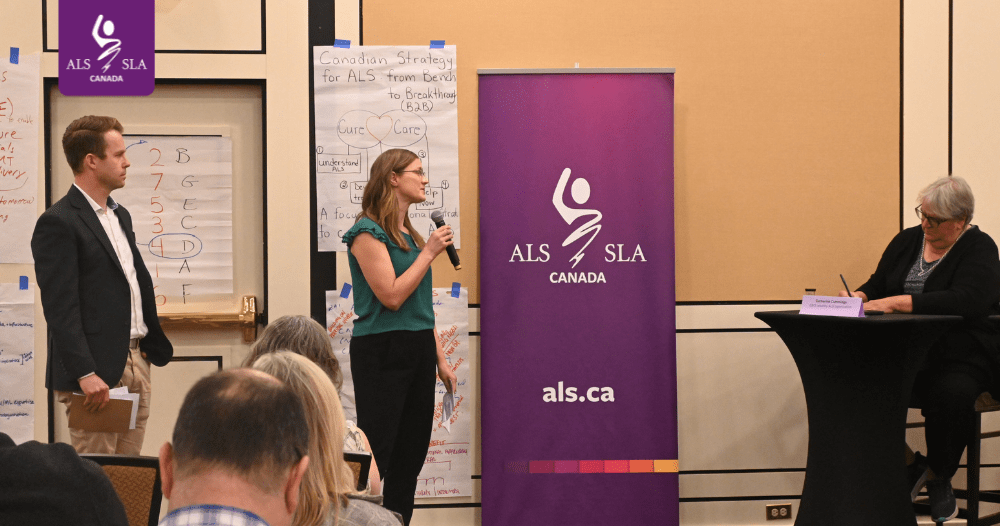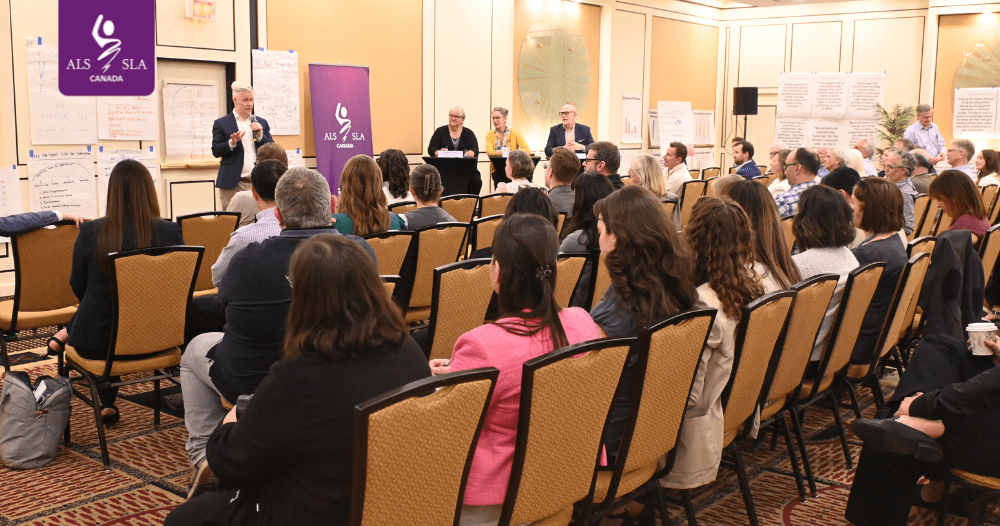On June 12, a diverse and passionate group of researchers, clinicians, ALS organizations, and people affected by ALS gathered in Toronto for the National ALS Research Summit. Hosted by ALS Canada, the day-long workshop marked a significant step toward building a unified, strategic approach to ALS research in Canada. Inspired by successful national strategies in the U.S., UK, the Netherlands, and Australia, participants explored how Canada could similarly advocate for government support and donor investment to accelerate ALS research.
The work to strengthen our research and clinical community began long before the Summit, starting with an overview of the Canadian ALS landscape, and interviews and surveys across the country. Participants provided their input on what they considered Canada’s research strengths, opportunities, and areas needing further support. On the day of the event, diverse opinions were shared, and an imaginative question was posed to attendees, centered around the urgency of an underfunded disease: “You end up next to the federal Minister of Health on a plane. Late in the flight, they notice that you work on ALS. They’ve just learned that someone they know was diagnosed, and as the plane is on final approach, they ask you what the Canadian government could do to make a transformational difference in ALS research with $50 million. What is your pitch?”
This scenario set the tone for a day of collaborative brainstorming, small-group workshops, and strategic discussions. The goal was to identify bold, forward-thinking priorities that could form the foundation of Canada’s first national ALS research strategy.
“My grandfather was fond of saying ‘A rising tides floats all boats’ and in that spirit of cooperation and collaboration, I believe that we will go farther together rather than in fragments and silos,” shared Cathy Cummings, CEO, International Alliance of ALS/MND Associations. “I hope the National Research Summit is a way forward for that.”
“Being involved in the National Research Summit was an amazing experience for many reasons. Scientists aligned with clinicians totally united with one voice to eradicate ALS,” said Matthew McNeil, ALS Canada Community Ambassador. “All of our voices within the Summit came together to collectively streamline our expertise to reach out to the Government of Canada, with the understanding and importance of proper funding to rid everyone of this disease in our lifetime.”
Based on input from the Summit, ALS Canada will begin outlining a framework for a National ALS Research Strategy, continuing to engage and work alongside the ALS community across the country. We will continue to advocate for federal investment in ALS research, laying the groundwork for a coordinated national push for increased research support. Additionally, supporting further dialogue among researchers, clinicians, and people with lived experience will ensure the strategy remains inclusive and impactful.
The ALS Canada team also looks forward to strengthening relationships with other ALS organizations and societies across the country, and continuing outreach efforts to foster collaboration.
Overall, the National Research Summit succeeded in uniting stakeholders around a shared vision and building momentum for future advocacy and funding alignment. With renewed purpose and growing collaboration across the country, we are set to transform the future of ALS research, ensuring every Canadian has the chance to participate.
“The National ALS Research Summit exceeded expectations. Individuals from all areas of the Canadian ALS landscape came together separately and left with a more unified voice than I’ve seen in a very long time,” shared Dr. David Taylor, Chief Scientific Officer at ALS Canada. “I’m incredibly excited about our next steps as a stronger, Canadian community, ready to take our collective impact to the next level.”

